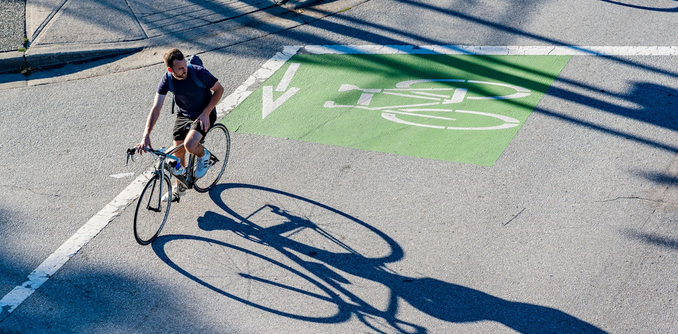- 18 Posts
- 27 Comments

 51·1 day ago
51·1 day agoA few more thoughts here:
- for a first Distribution, Ubuntu is fine, too. Also, you could ask people arounf you what they know best und whether they like to help you. For example, Debian is a bit harder to install but is rock solid once it runs.
- if you are concerned about security, you should practice a strict separation between trusted software installed by you, and untrusted data presented to you via web, mail or Internet. Never run untrusted code. Windows blurs that line and this is fatal.
- In respect to hardware support: Most standard PC hardware will work very well with Linux, even old scanners that have no more Windows driver support. NVidia is the bad exception, and the bad rap is still justified because of Wayland, the new graphics display server. If you are not really poor you might consider to buy something better. The hardware support landscape is different for laptops. Here, refurbished Lenovo Thinkpad or Dell laptops are first choice, and also best value for the money.

 7·2 days ago
7·2 days agoA good counter-example is Copenhagen. There, almost nobody uses ebikes in the city. (It would not be faster because there are so many bikes on the road. There is a bridge across the harbour where at rush hour times there pass more than two bikes per second, that’s over 5000 vehicles a hour.)
What made the difference was good, safe bike infrastructure. And NL has this, too.

 8·2 days ago
8·2 days agoA very uncomfortable reading but in this time, a necessary topic.
The new development since this text was written is the Trump administration dismantling security institutions and intimidating security companies.
And, the rampant illegal data collection of US companies feels increasingly hostile. Why would a smartphone or smartphone app need my fingerprints or microphone?

 7·2 days ago
7·2 days agoThat completely ignores the fact that a human being needs at least half an hour to one hour of light exvercise / physical movement daily to stay healthy at all. If you do not cycle or run, you’d need to go to a gym / fitness studio.
Also, if you care at all about CO2 emissions, eating vegan or vegetarian food is the way.
Also, driving 3 or 4 kilometers to a supermarket to get a veggie pizza needs way more energy and CO2 for the drive, thsn for the food itself. You can compute that from the fuel consumption of a car - about 180 Grams of CO2 per person per kilometer, so 1.4 kilograms for 4 kilometers each way.
Also, often the danger of cycling is stressed. That’s rubbish because of the health effect of physical exercise - the most dangerous aspect of modern life is lack of exercise, and if you use a bike instead a car you are wayyy less likely to die of cardiovascular problems, which are the real killer, not accidents.

 27·2 days ago
27·2 days agoEs ist eigentlich nicht richtig, verschiedene städtische Verkehrsmittel nach zurückgelegten Kilometern zu bewerten, denn Menschen haben nach gesichertem Ergebnis der Verlehrsforschung ein Wegezeitbudget.
Das heisst, wer ein “schnelleres” Verkehrsmittel nutzt, wird ganz automatisch weitere Wege zurück legen, die mittlere tägliche Zeit für Wege wird nach einer Anpassungsphase mehr oder weniger im Mittel dieselbe sein.
Und umgekehrt: Wer Fahrrad statt Auto fährt, verbringt deswegen im Mittel nicht mehr Zeit zum Pendeln. Statt dessen organisiert er oder sie kürzere Wege. Wer damit experimentiert, kann das gut an sich selber beobachten, denn der Zusammenhang wirkt sowohl kollektiv als auch individuell.
Die ernüchternde Erkenntnis hieraus: Das Auto spart keine Zeit.

 5·2 days ago
5·2 days agoI want to learn / use a functional programming language.
That’s a good idea.
With over 20 years of programming in languages like C, C++, Python, Go, Pascal, Forth and so on, I think functional languages are often easier - in the same way that programming without lots of global variables is usually and objectively better. There are of course a few domains where the OOP approach works better, like defining data structures with tight invariants, Linux hardware drivers, or simulating ships.
Or sometimes, you need a bit of imperative code for a number-crunching core.
But most code can advantageously be represented and structured as:
input -> transformation -> output
and the transformation part, which is almost everything which is really interesting, is where the functional style shines.
Now if you want something beginner-friendly and practical, it depends on what you want to do. Here my ten cents:
For systems programming, signal processing and embedded stuff, I’d totally recommend Rust. It has certainly a bit of Algol syntax but that’s rhe proverbial wolf in sheeps clothing: Many concepts actually come from OCaml, as well as the first Rust compiler. This would also answer the question whether functional languages are relevant and useful in industry.
If you want to do concurrent server-side programming, I believe there is nothing better than Clojure - perhaps with Babashka for scripting and ClojureScript for the Browser. Clojure is also incredibly elegant and concise, and at the same time it can use Java libraries, so it has huge library support, a battery powerhouse included.
If you learn both, you will see that Clojure and Rust have actually a lot in common in their approach to concurrency, which is preventing shared mutable state. It is great to learn both.
If you want a very practical, well-documented, and beginner-friendly language that also has great GUI support, I’d recommend Racket, a Scheme descendant. Like Clojure, it supports gradual typing.
If you want to program close to the Unix/Linux environment and want a simple as well as powerful language, a Scheme version could be a good choice. Personally, I love Guile, and use it where I previously used Python. Guile is very easy to use as a extension library for C and C++ programs or to control low-level code written in C. It also has a quite good REPL and debugger support and thus, interactive experience.
Speaking of Python, it has a great vector library which is heavily influenced by APL and functional designs, named Numpy. A C++ analogon would be Eigen. You see that functional programmers subversively introduce their filth everywhere!!
For data analysis, Scala could be an option. It is like OCaml on the JVM. Similarly, F# for .NET (but who wants to get entangled in Windows?).
If you want to keep it more multi-paradigm, you could chose Common Lisp - it will let you program in many styles and its SBCL implementation probably has the best performance after Rust. But Schemes like Guile or Racket are more geared toward a functional-preferring style. And if you want Lisp with stricter typing, there is Coalton - but I have not tried that last one.

 32·17 days ago
32·17 days agoIch finde den Artikel ganz schön tendenziös:
Zumindest, was den Autoverkehr angeht, soll es in den Nebenstraßen in den nächsten Jahren still werden. Durchgangsverkehr ist mit diesen Plänen kaum noch möglich und wer in diesem Kiez wohnt und ein Auto oder ein Gewerbe hat, hat schlechte Karten beziehungsweise muss Kreise und Kringel drehen, um von A nach B zu kommen.
Nicht jeder ist von den Ideen begeistert, die längst beschlossen wurden. [ … ] Dass es ebenfalls Probleme für Lieferverkehr, Handwerker und Rettungskräfte geben könnte - geben wird -, ist eines ihrer Gegenargumente.
Was ja Bullshit ist, weil Paris ja zeigt dass Rettungskräfte auf leereren Strassen ja sogar schneller zum Ziel kommen. Und natürlich gibt es Ausnahmegenehmigungen für Lieferverkehr
Während für die einen der Traum vom Leben im Grünen mitten in der Stadt, von Vogelgezwitscher und Kindern, die vorm Haus spielen, wahr wird, überlegen Ältere, wie sie ihre Einkäufe organisieren.
Weil ohne Auto können Menschen sich nicht mal kurze Distanzen fortbewegen ?
Und das Vogelgezwitscher soll den Leuten vorbehalten bleiben die sich ein Haus im Speckgürtel leisten können - das aber nicht selten mit Einsamkeit bezahlen, denn Vorstädte sind recht einsam?
80 Prozent der Bewohner des Kiezes seien jung und hätten gar kein Auto. Die meisten Wege würden zu Fuß zurückgelegt und eine Mehrheit würde die Maßnahmen befürworten.
Wo ist hier das Problem mit einer Mehrheitsentscheidung?
Fragt man ältere Nachbarn, fühlen die sich in ihrer Mobilität durch die Pläne eingeschränkt. Der Besuch bei den Enkeln in Brandenburg oder der Wocheneinkauf ist für sie ohne Auto undenkbar.
In der Stadt mit vermutlich dem besten und dichtesten ÖPNV-Netz in Deutschland?
Und was machen die Älteren, wenn sie nicht mehr sicher Auto fahren können? Gerade für Ältere ist ein besserer ÖPNV notwendig und ein Abbau des Verkehrs sicherer - und nicht jede/r der oder die in Rente geht, kann sich Kosten von z.B. 400 Euro im Monat für ein Auto leisten.
Denn eine verkehrsberuhigte Innenstadt könne auch zu Verdrängung führen. “Ursprünglich als Maßnahmen zur Verbesserung der Lebensqualität gedacht, steigern ökologischen Aufwertungen oft die Attraktivität eines Stadtteils, wodurch Mieten und Immobilienpreise steigen.”
Bizarr, sich gegen eine höhere Lebensqualität zu wenden…
WERA has fantastic high-quality tools specifically for bicycles.

 21·19 days ago
21·19 days agoThat would require to create a lot of new jobs for scientists coming from there. Otherwise it would just increase competition for unattractive jobs and lead more people to quit science (which I did).
And speaking of MINT professionals, we have a lot of stupid processes and bad working conditions here. Yes, for example in German industrial engineering, a lot of experienced software developers are sought for - but honestly, most managers do not have an idea what a requirement specification or an API really is. If you don’t believe me, ask for the API docs of the thing you should work on in their interview.

 3·19 days ago
3·19 days agoDie oebb.at Webseite (wo man alle DB Fahrkarten normal buchen kann) oder für den schmaleren Groschen Flixbus sind doch auch Optionen. Oebb hat sogar öfter mal sehr günstige Liegewagentickets…

 3·19 days ago
3·19 days agoIch habe meine Bahncard seit 25 Jahren, das ging immer per Lastschrift - jetzt aber nicht mehr, die “Verifizierung” per Verimi wird verlangt.
Das mache ich nicht, weil ich keine Möglichkeit habe, den tatsächlichen Umfang des Kontozugriffs zu überprüfen oder zu beschränken.
Kreditkarte geht auch nicht …
Paypal gehört einem gewissen Peter Thiel falls dir der Name was sagt. Mit dessen Firmen mach ich keine Geschäfte.
Obwohl es eine altbackene 1-Cent Überweisung ja auch tun würde, von mir aus könnte ich den Cent noch mit Bahncardnummer zurück überweisen.
Na dann halt nicht da buche ich halt unkompliziert Bahncard-Flexpreis bei https://oebb.at/, ist sowieso die bei weitem freundlichere und unkompliziertere Webseite.
Am Automaten gibt es noch Flexpreis, für Bahncard aber angeblich begrenzt (was bei der Oebb Webseite erstaunlicherweise nie ein Problem ist).
Oder wenn’s billiger sein soll halt Flixbus.

 45·19 days ago
45·19 days agoVerimi ist derDienstleister, den zwingend Kunden der Deutschen Bahn akzeptieren müssen, wenn sie “Supersparpreis” Ermäßigungsangebote der Deutschen Bahn kaufen wollen - diese gibt es nur noch online oder per App.
Verimi hat dabei das erkläre Ziel, die Identitäten der Kunden zu einer einzigen digitalen Identität zusammenzuführen - im Prinzip also so was wie ein Personalausweis fürs Web. Dies aber ist nicht von der GDPR gedeckt, das fusionieren von Kundendaten zum Zweck von Tracking benötigt die freiwillige ausdrückliche Zustimmung des Nutzers bzw Kunden.

 1·19 days ago
1·19 days agoI use OpenStreetMap.org on the PC, it has info about shops.
OSMand on the smartphone.
And brouter.web for planning bike commutes.

 2·20 days ago
2·20 days agoIch denke, Yanis Varoufakis schreibt hier eine in sich sehr logische und schlüssige Darstellung, was Trumps Motivationen, Überlegungen und Ziele sein könnten. Wobei ich denke, dass zumindest eine Teilabsicht auch ist, die EU zu spalten.
Ich denke auch dass es richtig ist, dass Trump einflussreiche Unterstützer hat unter den extrem reichen Amerikanern.
Aber ein stark autoritäres Element ist da auf jeden Fall dabei und die EU hat bisher recht gut Geschlossenheit bewahrt.
Ich halte es auch für möglich, dass sich Allianzen bilden aufgrund von Interessen, die Trump nicht einbezieht. Sicher ist China eine Art Systemkonkurrent zur EU. Aber beide Blöcke haben, beispielsweise, auch ein vitales Eigeninteresse an Maßnahmen gegen die Klimakrise - die EU weil zunehmend die Mittelmeer-Anrainerstaaten, und neuerdings auch Südosteuropa durch Extremwetter geschädigt werden und dies auch immer schneller zu einem wirtschaftlichen Faktor wird. Und die Tendenz gibt es auch in China, wobei noch hinzukommt dass Städte wie Bejing inzwischen auch real von gefährlichen Hitzewellen betroffen sind. Die chinesische Regierung könnte zu dem Schluss kommen, dass dies mittelfristig eine größere Bedrohung für die Stabilität ist als die Demokratie in der EU.
Ähnlich sind auch Allianzen zwischen anderen Südostasiatischen Staaten und der EU möglich.

 11·20 days ago
11·20 days agoYes. The Brexiters argued that they would be better off without an agreement with the Europesn Union on future trade policy and sgreements, seeing a “No-Deal-Brexit” as leverage which left the UK free to make more advantageous trade agreements with other countries.
Years later, not a single agreement has materialized which could even remotely make up for the lost trade with the European Union.
And, ironically, business sectors which thougth that they would profit from Brexit like fishing companies or farmers, suffered the most because they were completely unaware how much advantage the collaboration within the EU was giving them.

 10·20 days ago
10·20 days agoActually, the EU has a whole bouquet of options for countries that want to cooperate with it. It can be trade agreements, free trade area, currency union, Schengen Area and so on. Norway, Switzerland and Turkey are examples of different degrees of associated status.
But be aware that any full EU membership would non-negotiable include the right of not only companies but also people to move freely in the common area - yes, that would mean that any EU citizen has the right to move to and live in Canada, and vice versa, as long as these persons can support themselves.

 11·20 days ago
11·20 days agoCausing economic chaos and sudden large job losses in Germany is surely a way to help Gwrmanys extreme right-wing party AfD. I wouldn’t advise to under-estimate that danger.
Especially since the still-forming social-democrat/conservative coalition is surprisingly quiet on the rise of far-right practices in the US. Being distrustful, one could think that would-be chancellor Merz wants more to govern with the AfD - which, make no mistake, would probably be at least as bad as Trump.

 10·20 days ago
10·20 days agoHubert names a few big projects where Europe has done great things. Another one which I think is well worth mentioning is large numerical weather models.
If you sometimes track hurricanes in Carribean waters, you probably know that they do as least as well as - often better than- the US models. The current anti-science politics in the US leaves people alone not only on climate change as the cause of more frequent disasters, but also in the disaster itself, withdrawing science-based warnings and advice, civil protection, and emergency help.
In such a situation, our weather models could save many lives directly.

 28·20 days ago
28·20 days agoPeople just don’t realize how much power of abuse all this data provides in evil hands. Take smart phone location data. Some time ago, there was an uproar when the move-fast-break-laws company Uber published an analysis of how many of their clients in New York City had probably a one-night stand - based on their location data. A breach of privacy, sure.
But think about this: Google is collecting all this location data all the time, and storing it permanently. Finding out who is probably having an affair while their spouse is away on a business trip is essentially a database query for them.
Or another thing: It is well known that the animal most dangerous to single humans is other humans hunting them. The unspeakable hunt on Europes Jews is an example from hell but depressingly, there are many more cases in human history, like the witch hunts or the catholic inquisition.
Now, if things got too hot, people had the last resort to flee and simply disappear, going to a safe place where nobody knows them. That was the thing that saved Salman Rushdi when he had to flee Iran.
But in an ultra-connected world without privacy, this is not possible any more. That’s because companies like Facebook, Twitter/X and Google have your social graph including your family. And even if you would never would give these companies your address in Rushdie’s situation, a family member who has your address on the phone would happily upload his or her whole address book to Facebook or Google.
That’s not a theoretical consideration - being ratted out by social media was the way many people in Syrias civil war (fuelled by Russia) died.














Great article, a pleasure to read and a fantastic work of really good science and critical thinking.